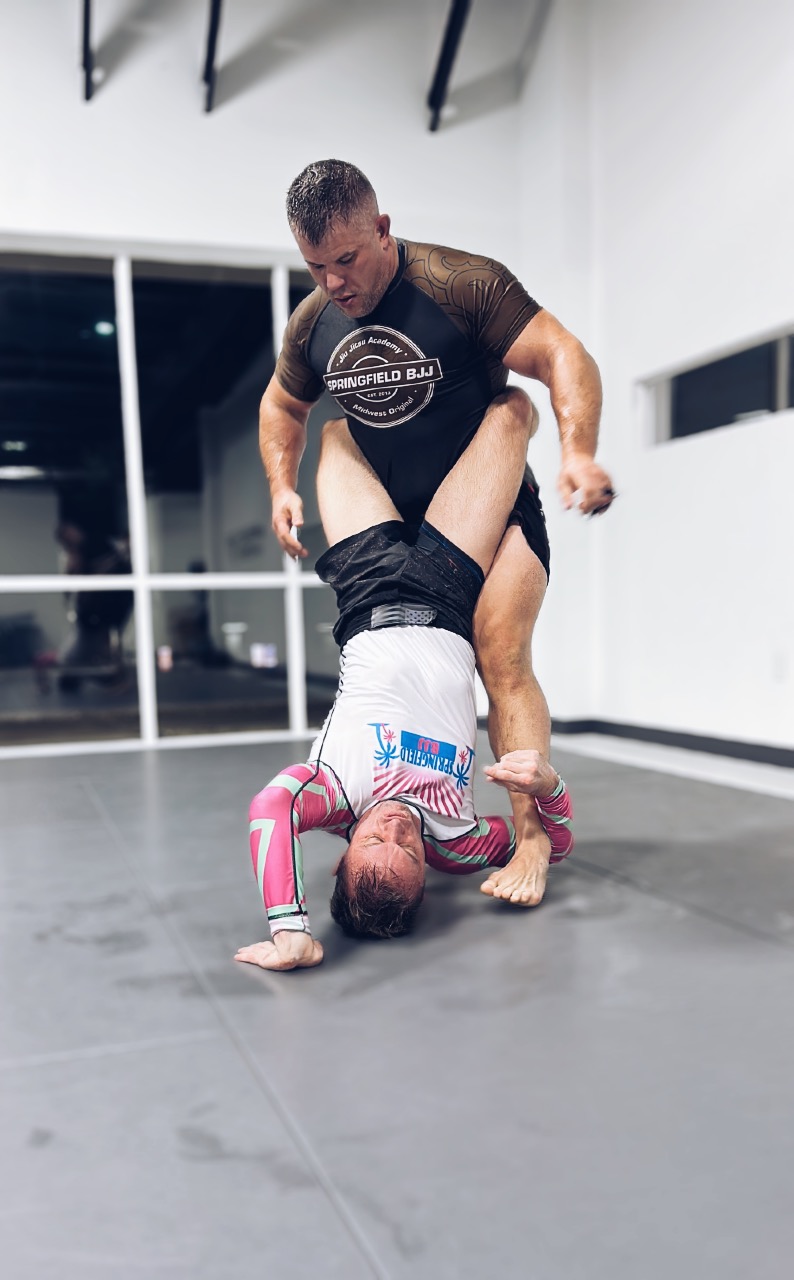At Springfield BJJ, we believe that self-defense is more than just an aspect of our training—it’s at the heart of what we do. While BJJ is often associated with sports and competition, its roots are firmly grounded in practical self-defense techniques. Understanding the foundational role of self-defense in BJJ is key to appreciating why it’s so important to train in this martial art, no matter your age, gender, or fitness level.
Brazilian Jiu-Jitsu: A Self-Defense System
Brazilian Jiu-Jitsu is unique among martial arts for its emphasis on ground fighting and submissions. It was originally developed to allow a smaller or weaker person to defend themselves against a larger, stronger opponent. This is especially important in real-world situations where self-defense is often required when you’re on the ground, something many martial arts don’t focus on.
At Springfield BJJ, students learn how to escape from dangerous situations, control an opponent, and subdue them with minimal harm. The techniques are designed to allow individuals to protect themselves without relying on brute strength, making BJJ a highly effective and accessible form of self-defense.
Real-World Self-Defense Statistics
It’s clear that self-defense skills are essential, especially in today’s world. According to the National Crime Victimization Survey (NCVS) conducted by the Bureau of Justice Statistics, approximately 1 in 5 women and 1 in 7 men will experience an attempted or completed attack in their lifetime. In addition, violent crime rates are still a serious issue, with one violent crime reported every 25 seconds in the United States, as stated by the FBI’s Uniform Crime Reporting Program.
These statistics show that being prepared for dangerous situations is vital. While no one expects to be in a physical altercation, having the ability to defend yourself can make all the difference. In particular, BJJ equips you with the skills to defend against larger, stronger opponents in ways that many traditional martial arts cannot.
Why Jiu-Jitsu Is the Best Self-Defense Training
- De-escalation and Control:
In many situations, the goal of self-defense isn’t to hurt your attacker but to gain control and escape safely. BJJ teaches control through joint locks, holds, and submissions that neutralize an opponent without causing significant injury. The emphasis on positioning and leverage allows you to subdue an attacker in a way that minimizes harm to both you and them, allowing you to disengage and seek help. - Ground Defense:
Unlike other martial arts that focus mostly on striking or standing techniques, BJJ’s ground-based techniques are vital. In many real-life confrontations, fights end up on the ground, where most traditional self-defense strategies are less effective. BJJ focuses on clinches, escapes, sweeps, and submissions that are crucial when you end up on your back or under an opponent. - Confidence:
One of the biggest benefits of BJJ is the confidence it instills. Knowing that you are capable of defending yourself, regardless of the size or strength of your opponent, gives you a sense of empowerment. This confidence can help you avoid potentially dangerous situations or better handle them when they arise. Furthermore, BJJ practitioners are trained to think quickly and stay calm in high-pressure situations—skills that extend beyond the mat and into daily life. - Mental Toughness:
Jiu-Jitsu is as much about mental strength as it is about physical technique. It teaches perseverance, discipline, and the ability to stay focused under stress—critical skills in any self-defense scenario. As you progress through the belts, you develop not only physical dexterity but also a mental toolkit for problem-solving in real-world situations.
Why You Should Train BJJ for Self-Defense
Regardless of whether your main goal is self-defense or sport, BJJ provides lifelong benefits that extend well beyond the dojo. Here’s why you should consider starting Brazilian Jiu-Jitsu today:
- Physical Fitness: BJJ is a full-body workout that improves strength, flexibility, endurance, and coordination. It’s an ideal way to stay fit while learning practical self-defense techniques.
- Real-World Preparedness: Self-defense is about more than just learning how to fight—it’s about being prepared to handle unexpected situations. By training in BJJ, you gain the skills and awareness necessary to protect yourself when it matters most.
- Accessibility: Unlike some other martial arts that may require a high level of initial fitness or strength, BJJ is accessible to people of all ages and fitness levels. You can start training at any time and learn at your own pace, developing your skills gradually.
- Community: At Springfield BJJ, we foster a supportive, positive environment where everyone, regardless of their experience level, can grow and thrive. We train together, learn together, and uplift each other both on and off the mat.
Conclusion
Brazilian Jiu-Jitsu is far more than just a sport—it is a practical, effective form of self-defense that prepares you for real-world situations. Whether you’re looking to defend yourself, get in better shape, or just learn something new, BJJ offers invaluable skills that go beyond what you might expect. At Springfield BJJ, we are committed to helping you grow, stay safe, and become a more confident, capable version of yourself—on the mat and in life.
If you’re ready to start your BJJ journey, we invite you to come by for trial classes or consultation. Join our community and see why self-defense and Brazilian Jiu-Jitsu go hand in hand!
Stay safe. Train smart.

Leave a Reply